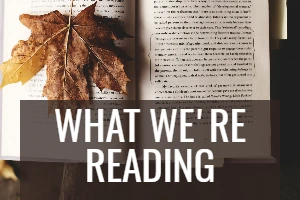It feels like we’re in a new era for music. It’s not just that streaming has changed the ways we listen, or that the ways music is being composed — on computers, on digital audio workstations, with artificial intelligence and compressors, sampling and wave processors. As the entirety of recorded music is now accessible in just a few clicks, the context of how we think about music is changing.
The ability to access any style, any era, any genre and remix at will gives audiences unprecedented power over what they hear and consequently more power to influence our contemporary musical culture and what gets made, played, and why. As a result, consciously or unconsciously, some recent books about the state of classical music have attempted to contextualize how and why we have got to this point.

John Mauceri (The War on Music) is a conductor and self-confessed “generalist” who believes that music of the 20th Century avant garde took a terrible wrong turn toward disruptive “ugly” music for a host of political and social reasons centered around World War II. A century that started with an avant garde declaring war on institutions ended the century being presented by institutions, he writes. Along the way, music lost its connections to audiences who had been fans of the “beautiful” music of the 19th Century. Such music was still being written, but was dismissed as “movie music” and therefore not allowed to be part of any “serious” conversation about where music was going. It’s a provocative thesis, and Mauceri is an entertaining and crisp writer who lays out the various political forces that shaped 20th Century music.

Joseph Horowitz’s Dvorak’s Prophecy, on the other hand, suggests that American classical music took its wrong turn when it failed to build on the traditions of Black music and instead continued a European conversation that didn’t authentically resonate in America. The title for the book comes out of Dvorak’s observation on coming to America in 1892 that the music of Black composers he heard were a strong foundation for a new American music. That was not a road taken, and “official” American music culture continued off in the direction of European avant garde traditions. Horowitz lays out a compelling case for authenticity and building on homemade cultural roots, and proposes a way forward that firmly grounds programming in context of its — and our own — time.
It’s difficult to argue with either author in attempting to diagnose the wrong paths taken and proposing remediation. Both books offer deep contextual understanding of the forces that shaped the directions of music in the 20th Century and even as they diverge on determining what ails us, they bring oxygen to the discussion. It feels, finally, and perhaps because our “fresh sheet” playlist menu is now so vast and decontextualized, as though we have emerged from an age of doctrine to a place in which we’re free to make — and understand — our own connections.
Discover more from Post Alley
Subscribe to get the latest posts sent to your email.

Both arguments make sense to me. A promising path that wasn’t taken, and a not so promising one that was.
They’re artistic choices, though, and there’s more to it. Prior to the advent of modern entertainment, society had a stratum of listeners who were trained in a musical tradition. An audience consisting of an aristocracy who themselves could play the piano to some reasonable standard and intelligently discuss a chamber music performance and engage the services of musicians, who knew a variety of formal dances, etc. They were the audience that supported the classical tradition. I don’t think they’re coming back.
It might be interesting, if we want to know how to come back to some viable constituency for modern classical music, to look at the jazz music of the early ’60s. There you’ll find a good deal of difficult stuff that somehow engaged a dedicated audience in its day, among people who certainly couldn’t play it. Some connection between the economic and social conditions of that era and the rise and fall of that music might contain a clue to the necessary conditions in a society without an educated aristocracy.